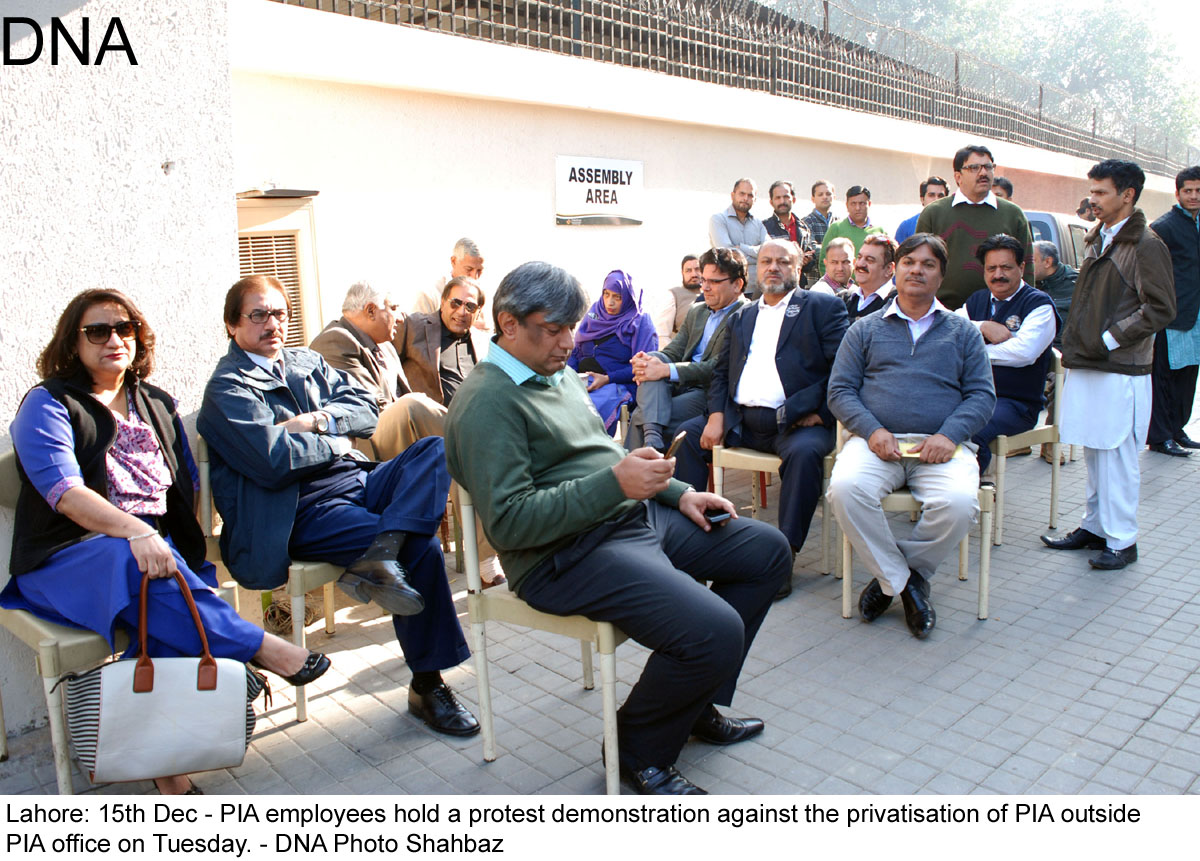Privatisation hits snag as PIA workers walk out in protest

ISLAMABAD: Employees of the ailing national airline on Tuesday walked out in protest over its planned privatisation, disrupting flights and undermining a central plank of reforms promised by Prime Minister Nawaz Sharif in return for an International Monetary Fund (IMF) bailout.
In September 2013, the IMF agreed to lend $6.7 billion over three years in order to save the country from possible default.
In return, the government of Pakistan agreed to broaden its tax base, cut electricity subsidies and privatise failing state companies that lose taxpayers around $5 billion a year.
Soliciting buyer interest in Pakistan International Airlines (PIA), whose accumulated losses stand at $2.29 billion, by December 31, is one of the major steps Islamabad needs to take for the programme to continue.
But the government is struggling to meet that deadline after a delay of many months in amending a 1956 law that bars PIA from being privately owned.
On December 5, the government issued a presidential decree to turn the national flag carrier into a limited company.
The PIA workers are demanding that the Ordinance should be retracted. Meanwhile, the political opponents accuse the government of bypassing parliament by opting for a decree over an amendment that would require lawmakers to vote.
PIA spokesman Daniyal Gilani said airline offices, including reservation booths, remained closed through Tuesday and pilots had joined the strike.
“The employees have a right to strike, but management has requested them not to disrupt flights,” he said.
Chairman of the privatisation commission, Mohammad Zubair, told Reuters the government had informed union representatives that advertisements for PIA’s sale would be published on December 31, “no matter what”.
“Despite some delays, the authorities’ privatisation and restructuring programme continues to move forward,” IMF’s Mission Chief for Pakistan, Harald Finger, told Reuters.
Related News

ICCI Election: Prominent business leader Atif Jamil Butt announces unconditional support to founder group
ISLAMABAD, AUG 29: /DNA/ – Prominent personality of Progressive Itehad Group Islamabad Atif Jamil ButtRead More

Gold prices in Pakistan hit another record high
ISLAMABAD, AUG 24: The price of gold in Pakistan continues to smash all previous recordsRead More


Comments are Closed